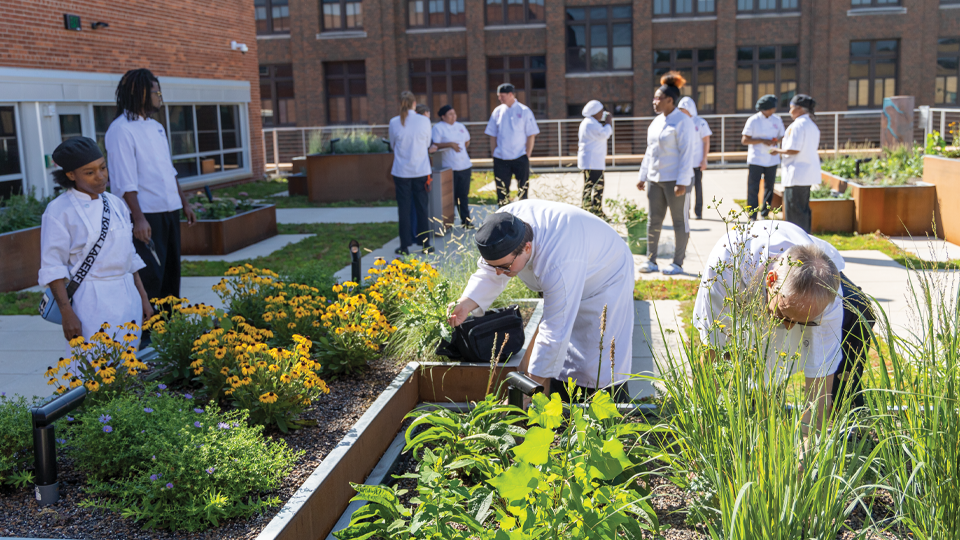
Students and instructors of MATC's Culinary Arts program harvest herbs on the green rooftop located on the Downtown Milwaukee Campus's T Building.
MATC's award-winning green roof is an energy-efficient oasis where students cultivate a sustainable future
There is a whole new world on top of the T Building on MATC's Downtown Milwaukee Campus.
Instead of the usual industrial landscape of HVAC units, pipes and tiling, a garden grows on a section of the building's third-floor roof. The green roof is a calm urban oasis with patches of greenery, welcoming benches, a dozen oversize planters and raised beds nurturing an assortment of herbs and other plants.
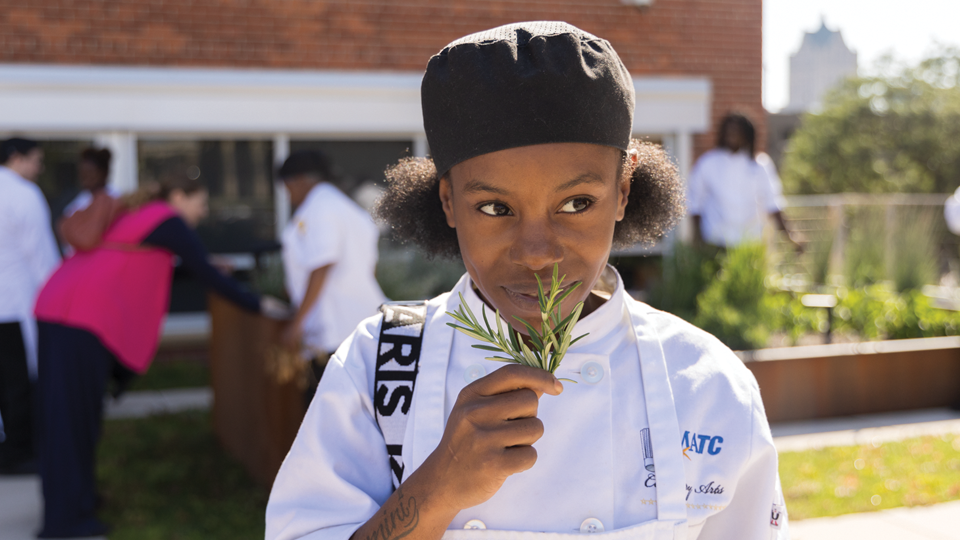
There's nothing like fresh rosemary from the garden.
Completed in January 2023, the $1.3 million green roof covers more than 4,600 square feet and is publicly visible and accessible from a skywalk connecting the campus' H and T buildings. The green roof and a small, publicly accessible park created near the T Building help manage nearly 24,000 gallons of stormwater every time it rains, according to the Milwaukee Metropolitan Sewerage District.
The project, which was started in June 2022, included reinforcing the roof with new structural steel, replacing windows, and installing fire protection sprinklers, HVAC systems and electrical wiring.
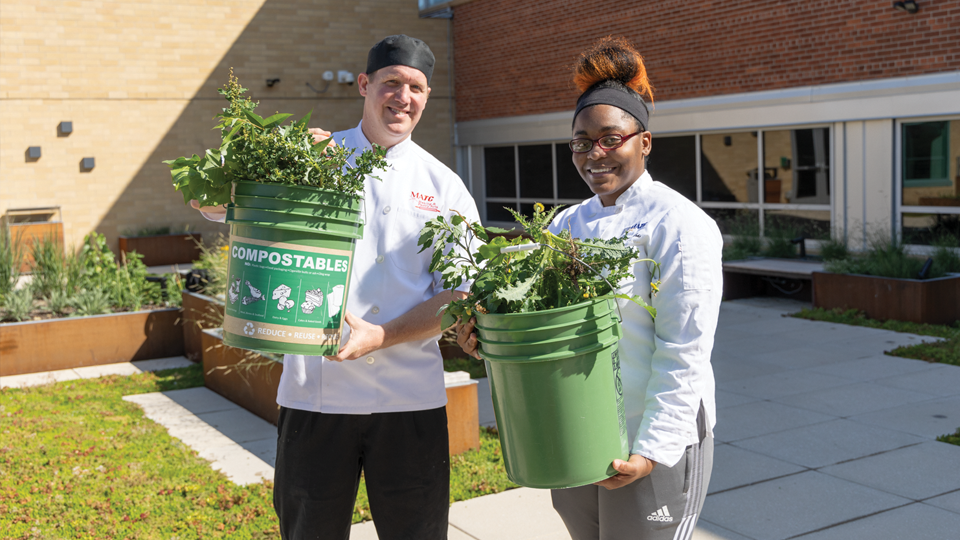
Kitchen scraps produced in classes are composted.
In June 2023, the project was cited in a Green Luminary award given to the college by the MMSD. The honor recognizes exceptional green infrastructure design projects carried out by businesses, organizations and communities. These projects must benefit the city's lakes, rivers and environment. MMSD and the Fund for Lake Michigan both contributed funding to the project.
MATC has a strong commitment to sustainability, including water reduction and protection, said Laura J. Tenpenny, MATC's manager of energy. The college's green roof stores water using sedum, a flowering plant commonly used for green roofs, along with paved stones and planters.
Students in the college's Culinary Arts program grew herbs in the planters to illustrate the possibilities and potential yield of urban gardens. The herb garden sprouted and flourished thanks to compost converted from food waste generated by the college's culinary classes.
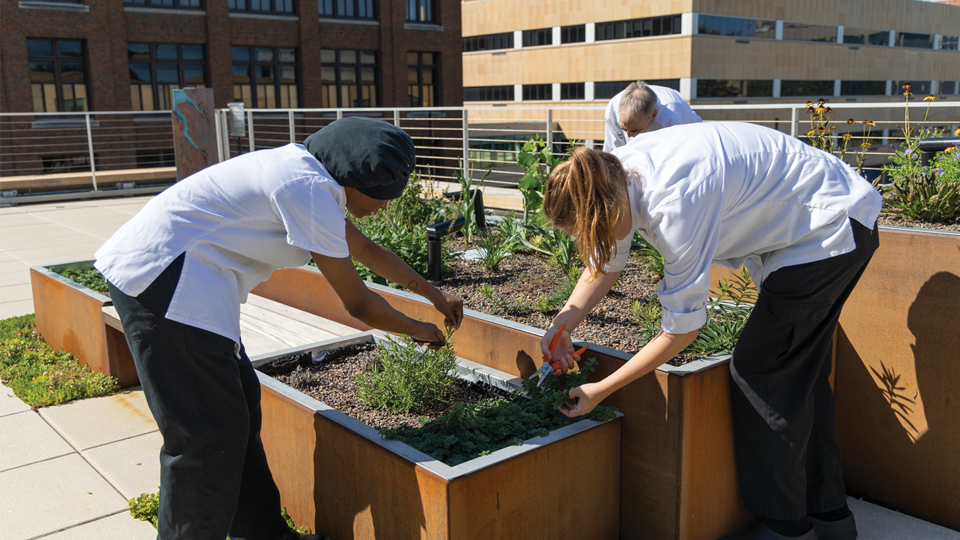
Culinary students harvest fresh herbs to use in their cooking for a rooftop-to-table dining experience.
The Culinary Arts program has been composting food waste, such as onion skins, egg shells, vegetable trimmings, and chicken, beef and fish bones, as well as paper products since 2016, said Jack Kaestner, an MATC Culinary Arts instructor.
The compost has had an impact beyond the herb garden — it was used to create new garden plots at the Mequon Campus and was donated and delivered to community gardens in Milwaukee.
Isaac Palmer, coordinator of MATC's Landscape Services, prepared the soil and planted the seeds in the green roof's herb garden last spring. Moving forward, culinary students will be in charge of the garden, Kaestner said.
Students will dress the beds with finished compost in the spring, plant more herbs, tend and weed the beds, and then harvest the mature plants in the fall to use as fresh ingredients.
"They will get to see the full circle — from food waste to food, from garbage to a garden," Kaestner said. "It's really a learning experience on multiple levels."
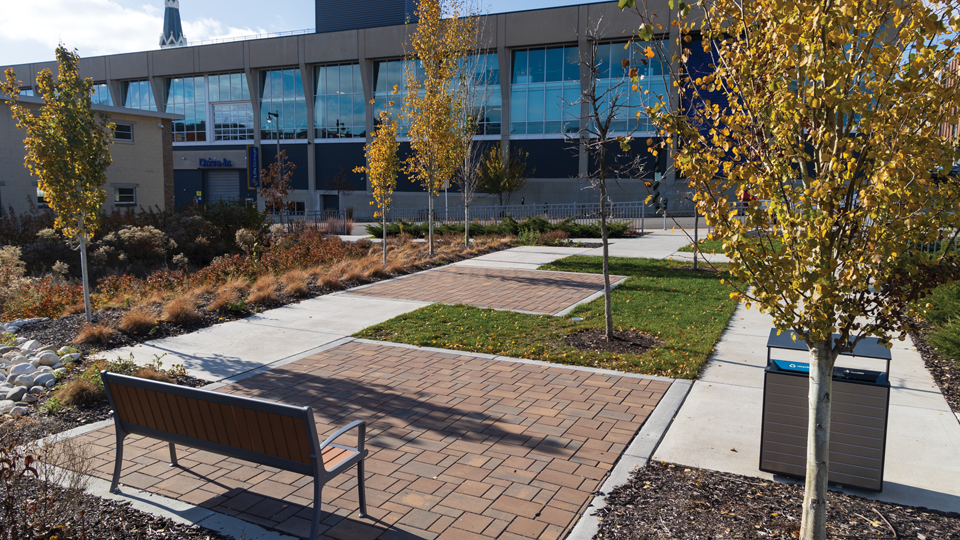
The pocket park at 8th Street and Juneau Avenue diverts about 24,000 gallons of water during storm events.
